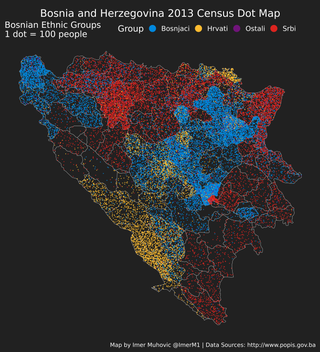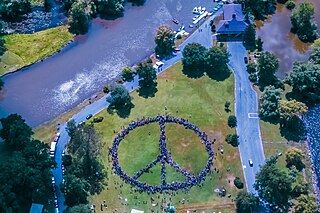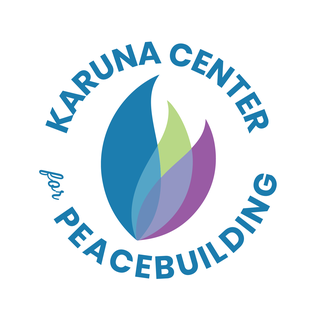
The General Framework Agreement for Peace in Bosnia and Herzegovina, also known as the Dayton Agreement or the Dayton Accords, is the peace agreement reached at Wright-Patterson Air Force Base near Dayton, Ohio, United States, on 21 November 1995, and formally signed in Paris, on 14 December 1995. These accords put an end to the three-and-a-half-year-long Bosnian War, which was part of the much larger Yugoslav Wars.

More than 96% of population of Bosnia and Herzegovina belongs to one of its three autochthonous constituent peoples : Bosniaks, Serbs and Croats. The term constituent refers to the fact that these three ethnic groups are explicitly mentioned in the constitution, and that none of them can be considered a minority or immigrant. The most easily recognizable feature that distinguishes the three ethnic groups is their religion, with Bosniaks predominantly Muslim, Serbs predominantly Orthodox Christians, and Croats Catholic.

Seeds of Peace is a peacebuilding and leadership development organization headquartered in New York City. It was founded in 1993. As its main program, the organization brings youth and educators from areas of conflict to its camp in Maine. It also provides local programming to support Seeds of Peace graduates, known as Seeds, once they return home. Its mission is to empower youth from conflict regions to work for a better future.

Sanski Most is a town and municipality located in the Una-Sana Canton of the Federation of Bosnia and Herzegovina, an entity of Bosnia and Herzegovina. It is situated on the banks of the Sana River in northwestern Bosnia and Herzegovina, in the region of Bosanska Krajina, between Prijedor and Ključ. As of 2013, it has a population of 41,475 inhabitants.
Peace education is the process of acquiring values, knowledge, attitudes, skills, and behaviors to live in harmony with oneself, others, and the natural environment.

Dr. James E. Waller is a widely recognized scholar in the field of Holocaust and genocide studies, and the inaugural Cohen Professor of Holocaust and Genocide Studies at Keene State College located in Keene, New Hampshire.

Peacebuilding is an activity that aims to resolve injustice in nonviolent ways and to transform the cultural and structural conditions that generate deadly or destructive conflict. It revolves around developing constructive personal, group, and political relationships across ethnic, religious, class, national, and racial boundaries. The process includes violence prevention; conflict management, resolution, or transformation; and post-conflict reconciliation or trauma healing before, during, and after any given case of violence.
The United Network of Young Peacebuilders is a global network of young people and youth organisations active in the field of peacebuilding and conflict transformation. UNOY Peacebuilders was founded in 1989 and is working with youth mostly in violent conflict and post war regions. The core activities of UNOY Peacebuilders are capacity building as well as advocacy and campaigning.
The Alternatives to Violence Project (AVP) is a volunteer-run conflict transformation program. Teams of trained AVP facilitators conduct experiential workshops to develop participants' abilities to resolve conflicts without resorting to manipulation, coercion, or violence. Typically, each workshop lasts 18–20 hours over a two or three-day period. The workshop events place a strong emphasis on the experiences of the participants, building confidence that everyone contributes something of value to violence prevention. AVP groups and facilitators are active in communities and prisons across the United States and in many other countries.
Mohammed Abu-Nimer is an American expert on conflict resolution and dialogue for peace. He is a full professor at the American University School of International Service in International Peace and Conflict Resolution in Washington, DC, the largest school of international relations in the United States.
Ibrahim Spahić is the president and director of the X Biennial of Young Artist of Europe and the Mediterranean.

Karuna Center for Peacebuilding (KCP) is a 501(c)(3) non-profit organization based in Amherst, Massachusetts. The stated mission of KCP is to empower people divided by conflict to develop mutual understanding and to create sustainable peace. The organization was named for the Sanskrit word for compassion. The organizations efforts in facilitating "post-conflict reconciliation" has led to active programs in more than 30 countries. They have co-implemented programs with the United States Agency for International Development, United States Department of State, United States Institute of Peace, and Fund for Peace, among others.
Center for Justice and Peacebuilding (CJP) is an accredited graduate-level program founded in 1994. It also offers non-credit training. The program specializes in conflict transformation, restorative justice, trauma healing, equitable development, and addressing organizational conflict. CJP is housed at Eastern Mennonite University (EMU) in Harrisonburg, Virginia, which describes itself as "a leader among faith-based universities" in emphasizing "peacebuilding, creation care, experiential learning, and cross-cultural engagement." One of the three 2011 Nobel Peace Laureates, Leymah Gbowee of Liberia, earned a master's degree in conflict transformation from CJP in 2007.
Samuel Gbaydee Doe is a conflict, peace, and development professional from Liberia. Doe was a cofounder, with Emmanuel Bombande, of the West Africa Network for Peacebuilding (WANEP), based in Accra, Ghana. This organization focuses on collaborative approaches to conflict prevention and was founded in 1998 in response to the civil wars taking place in West Africa. The organization is known for their work with several regional partners such as the Economic Community of West African States (ECOWAS) and the African Union’s Economic, Social, and Cultural Council (ECOSOCC).

Hizkias Assefa (1948) is a conflict mediator known widely in Africa for his non-aligned work as a consultant who has mediated in most major conflict situations in sub-Saharan Africa in the past 20 years, as well as in a dozen countries elsewhere. He is also a professor of conflict studies. Of Ethiopian origin, he is based in Nairobi, Kenya. He was one of the founding faculty members in 1994 of the Conflict Transformation Program at Eastern Mennonite University.
The Institute for Conflict Transformation and Peacebuilding (ICP) is a Swiss non-governmental organization specialized in the promotion of non-violent conflict transformation. Created by Pascal Gemperli and Uri Ziegele in 2007, the organization focuses on promoting conflict transformation and peacebuilding through peace mediation courses and trainings. Its comprehensive approach is based on interdisciplinary practice and research in the areas of international peace and conflict research, critical systems theory, culture and communication studies, political psychology, group psychotherapy and other related fields. The ICP has offices in both Bern and Morges (Switzerland). It is accredited ECOSOC and certified EDUQUA. It is active in the following countries: Switzerland, Serbia, Bosnia and Herzegovina, Croatia, Morocco, Azerbaijan and Armenia.

The Post-Conflict Research Center (PCRC) is a Sarajevo-based non-governmental organization, which aims to nurture an enabling environment for sustainable peace and facilitate the restoration of inter-ethnic relationships in Bosnia-Herzegovina. PCRC's expertise consists of innovative multimedia projects and creative educational curricula that engage youth in fostering long-lasting tolerance, mutual understanding, and social activism in the Western Balkans region. The Center’s overall mission is to build a robust network empowering youth with transferable skills and resources to spread an all-encompassing culture of peace among the many ethnic groups composing the country. PCRC’s overall strategy encompasses six core areas of operation: creative multimedia, preventing genocide, mass atrocities & violent extremism, peace education, transitional justice, post-conflict research and consultancy.

Velma Šarić is a Bosnian journalist and the founder and president of the Post-Conflict Research Center – a peace building organization, based in Sarajevo, which works to cultivate an environment for sustainable peace in Bosnia-Herzegovina and the greater Balkans region. As a trained researcher, journalist, and human rights defender, she has dedicated her career to investigative reporting and peace building in the Balkans. Velma works on behalf of marginalized groups in Bosnia-Herzegovina, promoting and encouraging respect for the rights of victims, women, and ethnic minorities.
Centre for Nonviolent Action is a peace organization focused on building sustainable peace in the region of former Yugoslavia. It was founded in 1997 in Sarajevo, Bosnia and Herzegovina, and expanded to Belgrade, Serbia in 2001. The organisation's main objective is to promote nonviolence and dialogue through trust-building among people from the region as well as a constructive approach to dealing with the past.
Global Neighbourhood for Media Innovation (GNMI) is a Karachi-based nonprofit working for media development, peacebuilding, and criminal justice system capacity building in Pakistan. It uses state-of-the-art literacy programs and digital platforms to enable aspiring and experienced professionals to accelerate the reduction in global challenges by creating sustainable, innovative, and empowering solutions for all people.










